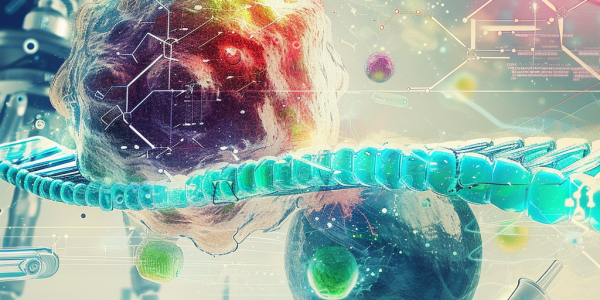New Research Unveils How the Brain Recognizes Patterns and Predicts Events
In today’s digital age, privacy is paramount as users navigate choices around cookies and personal data. A recent study published in Nature reveals insights into how the human brain detects patterns, enhancing our understanding of memory and cognitive functions. This groundbreaking research highlights the brain’s ability to predict future events based on recognized patterns, which could have significant implications for treating memory-related disorders. Discover how neuroscience is reshaping our understanding of cognition and privacy management.
Breakthrough Method Detects CO2-Derived Oxidant in Human Cells
Recent research from the University of São Paulo reveals a groundbreaking method for detecting peroxymonocarbonate, a significant biological oxidant derived from carbon dioxide (CO2) in human cells. This study highlights the physiological effects of elevated CO2 levels, particularly in urban environments, and emphasizes the urgent need to understand CO2 toxicity mechanisms and their implications for human health.
Texas A&M Researchers Unveil Nanotechnology to Combat Aging and Enhance Mitochondrial Function
Researchers at Texas A&M University have developed innovative MoS₂ nanoflowers to combat aging and related diseases by enhancing mitochondrial function. This groundbreaking approach aims to improve cellular energy production and offers new treatment options for conditions like diabetes and neurodegenerative disorders, marking a significant advancement in regenerative medicine.
Scientists Discover ‘Third State’ Beyond Life and Death
Scientists have discovered a ‘third state’ beyond life and death, challenging traditional perceptions of existence. This groundbreaking research reveals that certain cells, particularly those involved in organ donation, remain active post-mortem, offering new insights into regenerative medicine and organ preservation. The findings could redefine our understanding of life and death, prompting both scientific and philosophical discussions about existence.
Breakthrough in Protein Relocation Offers Hope for Cancer and Neurodegenerative Disease Treatments
Researchers at Stanford University have developed Targeted Relocalization Activating Molecules (TRAMs) to address protein misplacement in cells, a key factor in cancer and neurodegenerative diseases. This groundbreaking approach could lead to innovative therapies by restoring proper protein localization, enhancing our understanding of cellular dynamics and offering hope for new treatments.
Uncovering STING Protein’s Role in Cellular Aging and Health
Recent research from the University of Pittsburgh reveals the pivotal role of the STING protein in cellular aging and stress management. This groundbreaking study highlights STING’s dual functions in inflammation and cellular protection, suggesting new therapeutic strategies for age-related diseases. Discover how STING activation enhances lysosome production and autophagy, promoting cellular health and longevity.
Breakthrough in Regenerative Medicine: New Cell Therapy Enhances Tissue Healing
Recent research from Monash University reveals groundbreaking advancements in regenerative medicine through a new cell-based therapy utilizing Regulatory T cells. This innovative approach significantly enhances tissue healing, potentially revolutionizing treatments for injuries and conditions such as heart attacks and brittle bone disease. Published in Nature Communications, the study emphasizes the importance of timely intervention and the possibility of off-the-shelf cell therapies, paving the way for more efficient and accessible medical solutions.
Study Reveals How Protein Synthesis Errors Drive Tumor Growth
A groundbreaking study from the Indian Institute of Science reveals how errors in protein synthesis, specifically mRNA readthrough, can significantly impact tumor growth. Led by Associate Professor Sandeep Eswarappa, the research highlights the role of the FEM1B gene in regulating the cell cycle and its implications for cancer treatment. By utilizing CRISPR technology, the team demonstrated that targeting mRNA sequences may offer new therapeutic avenues to combat uncontrolled cell proliferation in cancer.
Mitochondrial DNA Dynamics: Key to Health and Longevity Insights
Recent research reveals significant insights into mitochondrial DNA (mtDNA) dynamics and its implications for human health and longevity. A study published on BioRxiv explores how mtDNA insertions in human brain cells correlate with earlier mortality, highlighting the potential impact of mitochondrial function on lifespan and health outcomes. Understanding these mechanisms may pave the way for innovative therapeutic strategies targeting age-related diseases.
Virginia Tech Study Reveals Insights into Bacterial Movement and Antibiotic Resistance
A groundbreaking study from Virginia Tech reveals critical insights into bacterial movement, specifically twitching motility, which poses challenges in the fight against antibiotic resistance. Led by undergraduate Megan O’Hara, this research highlights how bacteria colonize surfaces and the influence of environmental factors on their behavior. Published in mSphere, the findings underscore the urgency of developing innovative strategies to combat antibiotic-resistant infections, a growing global health threat.










